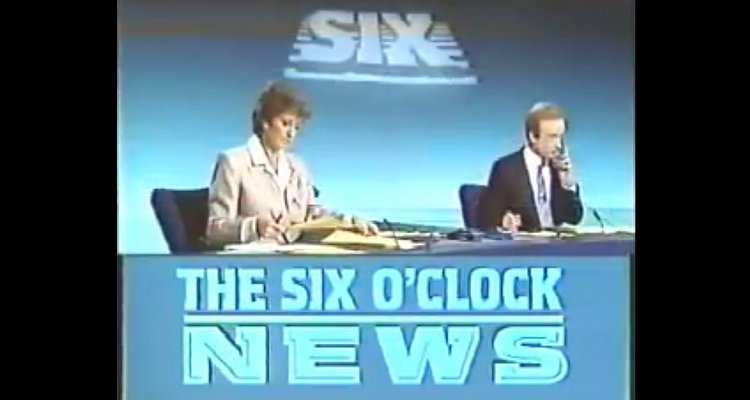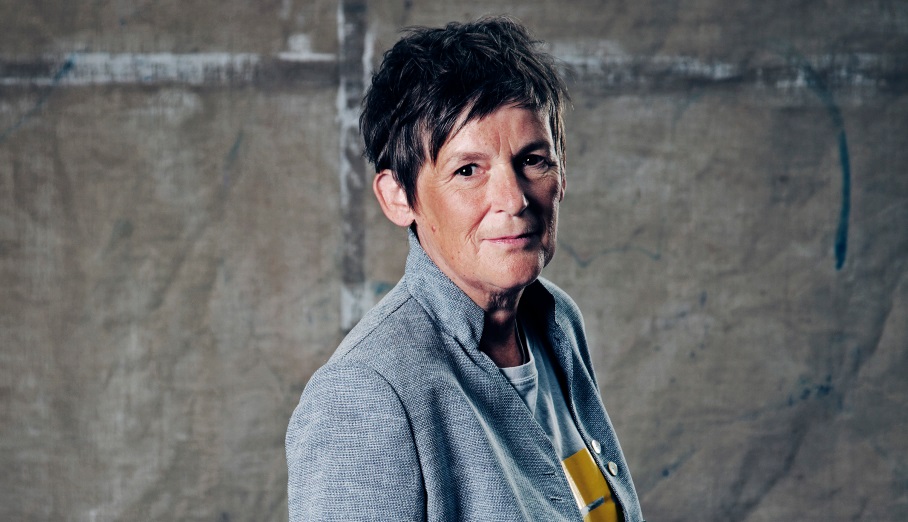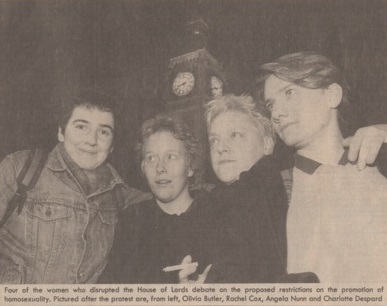Remembering the gay activists who stormed The Six O’Clock News to protest Section 28
It's exactly 17 years since the anti-gay legislation was finally repealed by parliament in 2003.
By Will Stroude

This article first appeared in Attitude issue 286, July 2017.
Words: Cliff Joannou
Clause 28 was such a divisive piece of legislation that a group of lesbians protested against it by abseiling into the House of Lords as it was being debated. Then, the night before it became law, four others invaded a live BBC TV news broadcast.
Being gay or a lesbian in the early Eighties was completely different to today, says Booan Temple. She is one of the team who forced their way into a BBC News studio in 1988 to protest against Clause 28, the anti-gay legislation brought in by Margaret Thatcher to stop all discussion of homosexuality in schools.
Across the UK there were high levels of homophobia, reflects Booan. “Seventy-five per cent of the population thought that gay relationships were almost always wrong.
“Appearing to be lesbian on the streets made you vulnerable to both verbal and physical attack. There were no safe spaces. Being [LGBT+] was simply a bad thing to be. It wasn’t criminalised but it was seen as a perversion to be hated and despised.”
This was highlighted by the media backlash that followed the discovery of a copy of the then-notorious children’s book Jenny Lives With Eric and Martin in a school library. A homophobic media went “ballistic”. The Daily Mail, Daily Star and The Sun accused gay people of trying to destroy the family.

Booan Temple was one of the team who forced their way into a BBC News studio in 1988 to protest against Section 28
At the time, Booan was a carpenter, part of an all-female Haringey Council team that built a refuge for Asian women and a women’s centre, among other projects. “We were involved in lots of things: rape crisis, women’s reproductive rights, the ‘stop the strip-search’ campaign. Here was a network of women who knew each other, so as this legislation was proposed, the idea that we had to do something grew,” Booan continues.
Thousands of lesbians started petitioning, writing letters, marching and lobbying. But Booan was especially motivated by the story of two close friends with children.
“They had been threatened with losing the children because they were lesbians. It was outrageous for this proposed legislation to say that the people you love are pretend, that you’re not a family and have no legitimate status because of who you are.”
Clause 28 threatened to affect the lives of young LGBT+ people. “Children were going to be bullied because their parents were gay, or because they came from a same-sex couple family, regardless of their own sexuality. But also children of heterosexual families who were gay were getting no protection. Nobody was going to be able to look after them.”
The momentum against Clause 28 gathered pace. Celebrities started coming out, including Ian McKellen, who compared the lesbians’ stance to that of the suffragettes. But frustration grew as the media and politicians largely ignored the campaign — a situation that would lead to more direct action.
Sally Francis (aka Sally Forth and Charlotte Despard) was one of four women who abseiled into the House of Lords moments after a vote in favour of the legislation on 2 February 1988.

Four of the women who abseiled into the House fo Lords to protest Section 28 (left-right: Olivia Butler, Rachel Cox, Angela Nunn and Charlotte Despard)
The group was made up mostly of women who’d met at Greenham Common, where anti-nuclear campaigners were protesting against the siting of American cruise missiles. “They were friends who I socialised with,” explains Sally. “There were also women I’d met in Lesbos, Greece.” They had experience of taking imaginative, nonviolent direct action from their involvement in the peace and feminist movements. There was no hierarchy, they didn’t have a name and were simply bound together by a commitment to draw attention to Clause 28.
The House of Lords action was conceived by an activist known only as Suzanne who, sitting in the chamber the day before, saw the microphones hanging from the ceiling and “had a Tarzan — or rather, a Jane — moment!” says Sally. “Believe you me, though, this was no slick operation. The ‘abseiling rope’ was a washing line we bought on the way into town, and smuggled into the building in my jacket.”
Recalling the emotion after she heard about what Sally and the others had done, Booan says: “It was just brilliant, absolutely brilliant. “The public galleries were packed. You’d be amazed what MPs and Lords were saying: ‘They’re the bigots; they want to destroy the family’ — and that was a Labour peer.”
Three months later, on 23 May, the night before Clause 28 passed into law, still frustrated by the lack of publicity, four lesbians — hiding behind the names Sarah, Charlotte, Anne and Eleanor (Booan herself) — would create their own piece of history.
As the BBC news began at 6pm, the four women invaded the studio, calling out: “Stop Section 28.” The programme continued with Sue Lawley reading the headlines as the disturbance was heard off-screen. Eventually, Lawley acknowledged the protest while, offcamera, her colleague Nicholas Witchell held the women back, famously sitting on Sarah. You can see it all on YouTube.
“We could not get the news to report on it so we thought, ‘Well, we’ll just be the news’,” says Booan. “We burst in — a lot of people in a very small space — and all hell broke loose. We were all arrested and carted off to Shepherd’s Bush police station. We just sat about and I think what was going on was that the Beeb were working out what to do.”
The four were never charged, most probably because, surmises Booan, the BBC didn’t want to give the incident any further attention.
“We were released into a massive array of cameras, and felt that at least we’d got some publicity.”
Typical of the media of the time, however, the focus was more on the scandal than the message of the protest. “It was all about Sue Lawley and Nicholas Witchell and although The Independent and The Guardian had OK pieces, everybody else was just ‘loony lezzas invade the Beeb’. I was really pissed off.
“But,” she adds, “it’s still being talked about so actually that moment is allowing us to speak about everything people were doing at the time, and reminds us how new — and vulnerable — our privileges are.”
